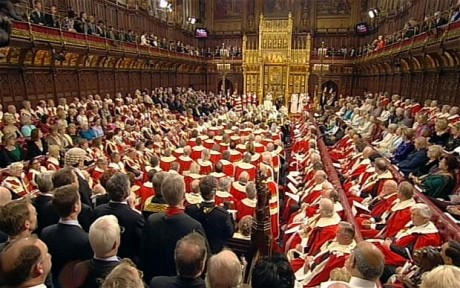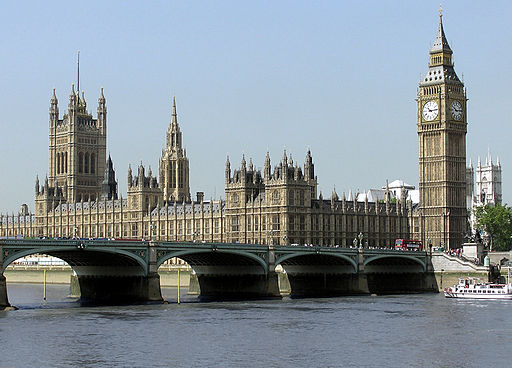Royal Archives That We Pay for but Aren’t Allowed to Read: A Brief History
The Guardian recently reported that the Cabinet Office is blocking access to some of the papers of Lord and Lady Mountbatten. The papers were ‘acquired for the nation’ in 2010, with the assistance of (what is now) the National Lottery Heritage Fund. Announcing the grant, the Fund stated: “[T]he University of Southampton is on track to ensure that the records of those who stood at the very forefront of British political life will be preserved for future generations of historians, scholars and the public to explore and enjoy.” The Guardian reports that, despite an order from the Information Commissioner, the university has refused to allow access to some of the Mountbatten MSS, in particular the Mountbattens’ diaries and some correspondence. Although the reports do …
The Crown’s Irresponsible Adviser, the Governor General, and the Australian Constitutional Crisis of 1975: A Smoking Gun?
On 14 July, following legal proceedings, the National Archives of Australia released correspondence between Sir John Kerr, who served as Governor General of Australia from 1974–77, and Sir Martin Charteris, the Principal Private Secretary (PPS) to the queen. The letters concern Kerr’s decision to dismiss Gough Whitlam, the Labor Prime Minister, who was then locked in a battle between the House of Representatives, where he held a majority, and the Senate, which opposed him and was blocking supply (the federal budget). Leading scholars, such as Anne Twomey, as well as Buckingham Palace, have argued that the letters contain no smoking gun connecting Kerr’s actions to the monarch or her PPS. However, we believe that we can see a wisp of smoke. And it lingered. Kerr and Charteris …

Complex Negotiations are Dynamic and Unpredictable: An analysis of Sturgeon’s and May’s approach to Brexit
In the week of 13 March, two momentous events took place. Parliament passed the bill giving the government authority to notify the European Council that the United Kingdom intends to withdraw from the European Union. And First Minister Nicola Sturgeon announced that her government will introduce legislation for a second independence referendum for Scotland. The first occurred despite the House of Lords’ insistence on a prior guarantee of the status of EU citizens or of an up-or-down vote on the final deal (or no deal); the second was a surprise move, seemingly calculated to pre-empt a positive news cycle on the day the bill was approved. These two leaders’ approaches to Brexit so far show the difference between imposing order and control in an …

The death of Antonin Scalia should remind us of the perils of an aging Supreme Court bench
Since last Sunday, plenty of ink has already been spilled following the death of Justice Antonin Scalia, who had served on the United States Supreme Court since 1986. And newspapers, law journals and political commentaries will be filled for the next few weeks with evaluations of his judicial legacy, the consequences of his death for the court, and its impact on the current presidential election in the United States. Already the New York Times and the Washington Post are filled with speculation about the latter two and editorials about the first. The easy, obvious point to be made is that he was one of the most influential jurists of his age, emphasizing a form of originalist interpretation of the US Constitution that has gained prominence, …

The general election and constitutional reform: A look at the manifestos
One of the central problems with studying the politics of constitutional change in the UK is that the public does not care about the constitution. Unsurprisingly, constitutional reform does not figure prominently in the party manifestos for the May general election. That does not mean that these documents tell us nothing at all: they show that parties stick with their old policies; that the Conservatives seem to avoid any explicit reference to the constitution; and that all political parties appear to be willing to use the constitution to their own advantage.
In this blog post, I distil some of the constitutional issues in the party manifestos of the three largest parties in Westminster in the last parliament: the Conservatives, Labour and the Liberal Democrats (if there’s time, I will do another post on the smaller parties’ proposals). I define ‘constitutional’ issues as distinct from ‘distributional’ ones, which involve reallocation of resources (and the regulation of behaviour). Constitutional issues are about how decisions are made, not about the outcomes themselves, and should be neutral between, say, more or less progressive (or conservative) substantive policies.

And the House of Lords trundles on
In an election held this month, Raymond Benedict Bartholomew Michael Asquith, third earl of Oxford and Asquith was elected to take up the seat in the House of Lords vacated by the death of Robert Alexander Hold Methuen, the seventh baron Methuen. The ballot was conducted using AV (the Alternative Vote), but Lord Oxford received 155 votes of the 283 votes (55%), so preferences were not taken into account. (The proxime accessit, Lord Napier and Ettrick, received only 35 votes, and seven of the fifteen candidates received only one vote or none at all.) Turnout was 36%. All members of the House of Lords (currently 776) were eligible to vote. The new member will sit with the Liberal Democrat peers, as did his predecessor.
This unusual process is a result of a compromise reached when the House of Lords was reformed in 1998 and 1999. The Labour Party manifesto in 1997 had proposed to remove all of the hereditary peers from the house, but in a departure from the Salisbury-Addison convention the Lords objected and prevailed, forcing the government to retain 92 of them. (McLean 2009: 234) (In reality, only ninety were retained. The other two hereditaries are held ex officio by great officers of state: the Earl Marshal and the Lord Great Chamberlain, who are peers.) Lord Cranborne, who as Conservative leader of the Lords engineered this bargain, failed to tell his leader William Hague about it and was sacked when Hague learned of it independently.

Constitutional entrenchment in England and the UK
Frequently people think that there are only two ways address flexibility in a constitution: to legally entrench an entire document and to protect it with strong judicial oversight, or to have a political constitution and a sovereign parliament, which, in the words of A.V. Dicey, ‘has … the right to make or unmake any law whatever….’ One aspect of this sovereignty is that parliament cannot bind itself: ‘That Parliaments have more than once intended and endeavoured to pass Acts which should tie the hands of their successors is certain, but the endeavour has always ended in failure.’
Parliament has regularly used language limiting its future options. The Bill of Rights (1688) says that the rights declared there ‘shall be declared, enacted, and established by Authority of this present Parliament, and shall stand, remain, and be the Law of this Realm for ever’. More recently, Parliament promised in the European Union Act 2011 to hold a referendum on any law that increased the competencies of the EU and put in place mechanics for holding itself accountable through judicial review. Are these attempts really as pointless as Dicey claims?

Same-Sex Marriage, National Churches and the Labour Party
On 11 December, the government announced its response to the consultation on same-sex marriage that took place from 15 March through 14 June 2012. The initial consultation concerned how (not whether) to proceed with same-sex civil marriage. In its response to the initial consultation, the Church of England failed to respond to the question that the government had asked. It took the position that all marriage (civil or religious) was the same and that same-sex marriage should not be offered by the state.










